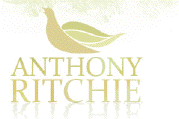

Ururangi and Waipunarangi
music by Anthony Ritchie, for SSAATTBB choir a cappella, Opus 225 (2024)
Part of the choral cycle Matariki He Kāhui Reo for premiere at the 13th World Choir Games, Auckland
- Duration: 4 minutes each
- Commissioned by: Chor 2024
- Texts by Ataahua Papa
- Level: 3 | Professional and semi-professional musicians
These two waiata were composed as part of the collaborative work Matariki He Kāhui Reo for premiere at the 13th World Choir Games, Auckland, July 15, 2024. The work was commissioned by Chor 2024. In Te Ao Māori, Ururangi and Waipunarangi are two of the stars from the Matariki constellation; Ururangi is traditionally associated with the wind, while Waipunarangi is associated with rain.
Text for Waipunarangi and translation
Ko Waipunarangi Waipunarangi
Te whetū o ngā wai e heke ana i te rangi
The star of the waters that fall from the sky
Ki te ākehukahu te āhua, he tau mākū, he kaha hekenga o te ua, he waipuke
If it is cloudy, the year ahead will be very wet, with strong rains and flooding
Ko 'Matariki tāpuapua' te hua o te kaha o te pūnoke
The rainy season is the result of the strength and persistent rainfall
Ki te pïataata, ka iti iho te hekenga o te ua
If the star twinkles, there will be little rainfall in the year ahead
He whetū whakahirahira ki te hunga hï ika, ki ngā kairaranga, ki te hunga whakatere waka.
It is a special star to those who fish, those who weave and to those who sail voyaging waka
Ururangi begins as a general evocation of the wind and Tāwhirimātea, the god of the wind. In the second half a gentle northerly wind brings sad memories of loss and loneliness in a setting of the text E Pā tō hau by Rangiamoa. The story behind this text is best related by reference to the Te Ara website: E pā tō hau, a very famous waiata tangi, or lament, was probably written by Rangiamoa of Ngāti Apakura, one of the tribes of Waikato. Ngāti Apakura used to live at Rangiaowhia, an undefended settlement near Te Awamutu. The tribe did not take part in the Waikato war, but Rangiaowhia was attacked by British troops, and after the 1864 battle of Ōrākau its occupants were forced from their homes. Later their lands were confiscated. A section of Ngāti Apakura travelled towards Taupō. Rangiamoa's cousin Te Wano paused to gaze upon his former home from the promontory of Titiraupenga. He died there and was buried in a cave. In lamenting the death of her cousin, Rangiamoa was mourning the fate of all her people. Listen to E pā tō hau .
Text for Ururangi and translation
Ko Tāwhirimātea te atua o ngā hau.
Tāwhirimātea is the god of the winds.
Ko Tāwhirirangi he ingoa anō tōna.
He is also known by the name Tāwhirirangi.
E pā tō hau he wïni raro
Gently blows a northerly breeze
He homai aroha
Bringing some sorrow with it
Kia tangi atu au i konei
While I sit here and mourn
He aroha ki te iwi
'Tis my love for the people
Ka momotu ki tawhiti
that have departed afar
Ki Paerau
to Paerau
Ko wai e kite atu?
For who will see them now?
Kei whea aku hoa I mua rā?
Where are my friends of yesteryear?
I te tōnuitanga?
That lived together?
Ka haramai tënei ka tauwehe
They are separated from me
Ka raungaiti au ii
I am alone.
Buy the right to download a pdf containing the full score of Waipunarangi online using one of these options:
Buy the right to download a pdf containing the full score of Ururangi online using one of these options:
Orders are processed every 5 minutes. An email with a link to each file will arrive within 6 minutes of checking out.